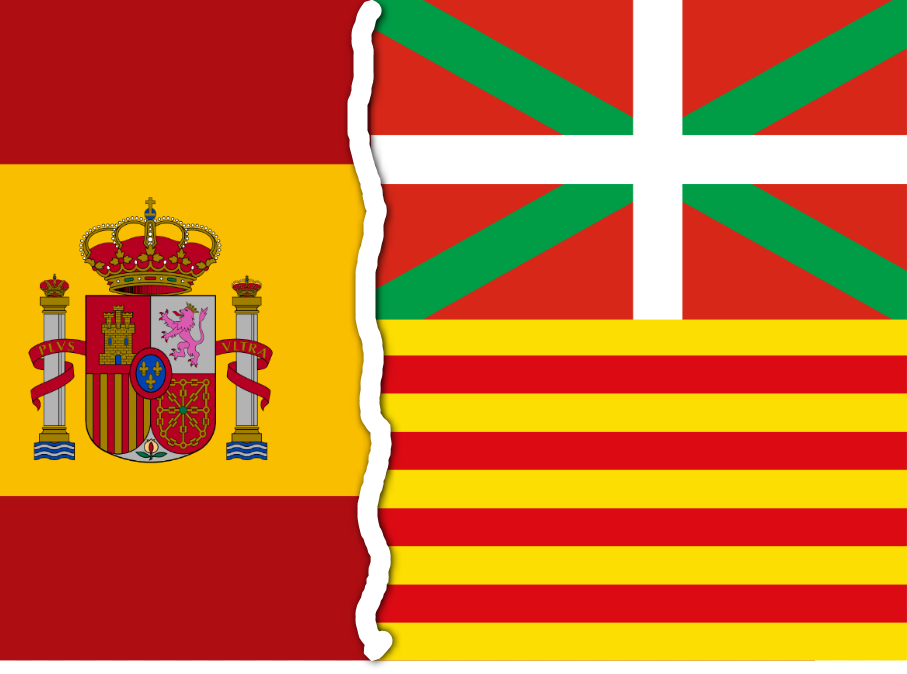
How are the regional elections in Basque Country and Catalonia important for the national politics of Spain?
Spain’s political landscape is heating up once again as two Autonomous Communities – Basque Country and Catalonia – go to the polls.
Elections for the regional parliaments of Basque Country and Catalonia are set to be held on April 21 and May 12 respectively. While regional in nature, these elections have the potential to have an effect on the national politics of Spain.
These two autonomous communities have been restive regions as both have been associated with separatist movements. Of the two, the Basque separatism was more violent as a separatist group named Euskadi Ta Askatasuna (ETA) meaning Basque Country and Freedom, was engaged in a violent struggle with the Spanish government over the political status of the region between 1959 and 2018. Although the group was disbanded in 2018 nationalist sentiments remain strong in the political landscape of Basque Country.
Similarly, Catalonia has had an uneasy relationship with Spain’s political dispensation. Being the most prosperous region of Spain, the Catalan separatists have been at loggerheads with Madrid over revenue sharing. Over a period, the fiscal dispute assumed a greater character and has come to include factors such as distinct Catalan culture, identity and language. While Basque Country may be peaceful, the Catalan political landscape still remains a hotbed for separatist sentiments through the political parties.
The elections for the Basque Parliament are going to be held on April 21. The Basque Parliament has 75 seats and the majority mark is 38 seats. At present the Basque Nationalist Party (Partido Nacionalista Vasco – PNV) is in power in Basque Country. Surveys suggest that the opposition party EH Bildu could win more seats than the PNV. Should the PNV want to form the government, it would need support from the Socialist Party. EH Bildu could win 30 seats, the PNV 28 seats while the Socialist Party could come third with 10 seats. While at regional level EH Bildu and the PNV may be in the opposing camps, but both the parties had lent their support from outside to Sánchez in forming his government.
The elections in Basque Country are important for Spain’s ruling Socialist Party as much as they are for EH Bildu and the PNV.
As regards to Catalonia, the elections for the 135-seat Catalan Parliament are going to be held on May 12. Catalan President Pere Aragonés called elections, originally scheduled for 2025, on May 12 after the budget he proposed was rejected by the assembly. These elections are also likely to increase the tussle between Catalonia and Madrid. A day after Aragonés announced the elections the Spanish parliament passed a law to grant amnesty to hundreds of leaders and supporters of the Catalan separatist movement. This law would also pardon those who were instrumental in a failed attempt in 2017 to declare Catalonia’s independence from Spain.
The elections in Catalonia have become more complex with former Catalan President Carles Puigdemont announcing his decision to contest these polls. Puigdemont was the president when Catalonia tried to declare independence from Spain in 2017. Following crackdown on the separatists by the then Spanish government led by Mariano Rajoy, Puigdemont fled to Brussels where he had been living in self-imposed exile. The recently passed amnesty law would benefit Puigdemont as he would be pardoned for his role in separatist activities.
Also Puigdemont’s party Junts Per Catalunya had lent its support to the current Spanish President of the Government Pedro Sánchez in November 2023 in the government formation. In this government formation the support of the seven members of parliament from the Junts and seven members of parliament from the Esquerra Republicana Catalunya (the current ruling party in Catalonia) proved to be important. While Puigdemont has stated that after returning to Catalan politics he would again work for independence, it is unlikely that Sánchez would be able to contain Puigdemont as Junts’ support is crucial to Sánchez’s political survival.
Recent surveys suggest that the Socialist Party, currently the ruling party at the centre, could emerge as the single-largest party with 39 seats. The Junts and Esquerra Republicana Catalunya – to which the current Catalan President Pere Aragonés belongs – are expected to win around 30 seats each. It means that the Socialist Party would need support of Junts in the Catalan Parliament as well to form the government as the majority mark is 68 seats.
The elections in Basque Country and Catalonia are important at regional level. However, these elections are more important at national level as the Socialist Party looks to make some gains. It is pertinent to note that in the last general elections, Popular Party had emerged as the single-largest party. However, the Socialist Party was able to stitch a coalition and form the government. Also the Popular Party is currently in power in 12 out of 17 Autonomous Communities of Spain as well as in the two Autonomous Cities Ceuta and Melilla, either on its own or in coalition with other parties.
Spain’s ruling Socialist Party has been on a weak footing for a long time. Spain’s general elections in July 2023 were called by Pedro Sánchez after the Socialist Party performed badly in the regional and municipal elections held in May 2023. With a weak performance at its back, the Socialist Party would try to make whatever gains it can in the regional elections in Basque Country and Catalonia.
Niranjan Marjani
Niranjan Marjani is an Independent Political Analyst and Researcher.

